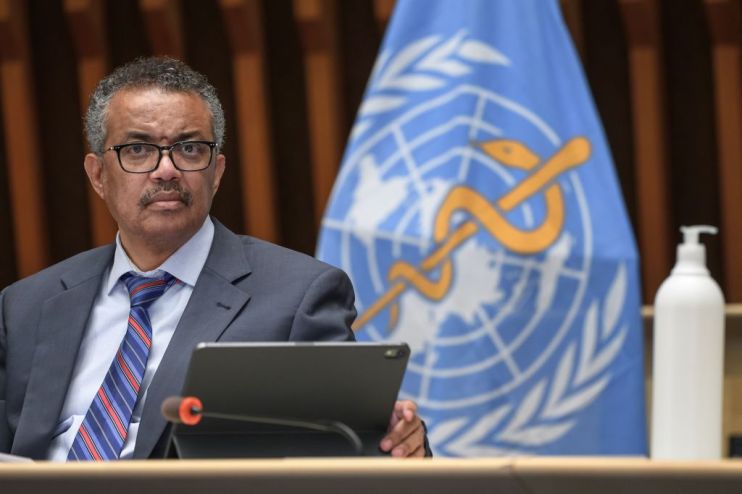WHO head warns that there may never be ‘silver bullet’ coronavirus vaccine

The head of the World Health Organization (WHO) has warned that there may never be a “silver bullet” in the form of a perfect vaccine for coronavirus, imploring countries to “do it all” to beat the virus.
Speaking at a news conference in Geneva, WHO Director-General Tedros Adhanom Ghebreyesus urged countries to enforce mask-wearing, social distancing, hand washing and testing.
“The way out is long and requires a sustained commitment”, said WHO emergencies head Mike Ryan, who joined his boss at the virtual conference.
Ghebreyesus said that the race to find a vaccine was “unprecedented”, with more than 150 programmes dedicated to developing a treatment having been set up around the world.
Some of these vaccines have entered stage three clinical trials, raising hopes that they could be approved and rolled-out en masse before much longer has passed.
However, Ghebreyesus cautioned against placing all hope in a vaccine, saying: There’s no silver bullet at the moment – and there might never be.”
“There are concerns that we may not have a vaccine that may work, or its protection could be for just a few months, not more”, he went on.
Before the Open newsletter: Start your day with the City View podcast and key market data
“But until we finish the clinical trials, we will not know.”
Many hopes have been pinned on Oxford University’s potential vaccine, which it is developing in partnership with drugs giant Astrazeneca.
Last month results of an early stage trial showed that it had induced a “strong response” from the immune system, with no dangerous side effects.
Scientists concluded that further studies should be carried out with the vaccine to see if it can offer protection against coronavirus.
However, with cases growing in some parts of the world, Ryan warned that some countries might have to reset their current strategy for handling the virus.
“Some countries are really going to have to take a step back now and really take a look at how they are addressing the pandemic within their national borders,”
More than 18.1m people around the world are reported to have been infected with the disease and 688,080 have died, according to a Reuters tally.